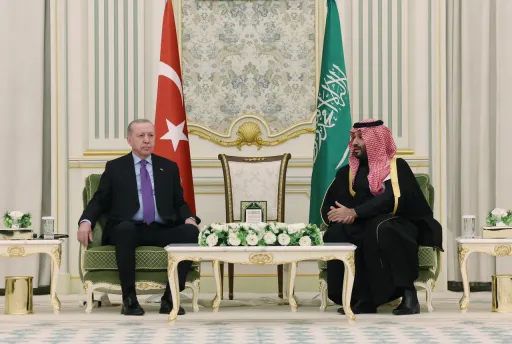The stakes are high in Malawi's general election, with the incumbent President Lazarus Chakwera facing off against his familiar rivals, including former heads of state.
Chakwera's main challengers are Peter Mutharika, who served as Malawi's fifth president from 2014 to 2020, and Joyce Banda, who led the country as its fourth head of state from 2012 to 2014.
Other notable candidates are Malawi's Vice President Michael Usi; the country's former central bank Governor Dalitso Kabambe, and Atupele Muluzi, the son of Malawi's former President Bakili Muluzi.
In August, the country's electoral commission cleared 17 people to run for president in the September 16, 2025 elections.
Economy at the centre of campaigns
Approximately 7.2 Malawians out of a population of around 22 million are registered to vote.
But what are the key issues in this election?
Number one: the country's economy.
The cost of living has significantly increased, and more Malawians have seen their incomes dwindle as inflation topped 20% in three consecutive years.
President acknowledges 'tough economic times'
In early September, Chakwera acknowledged that Malawians were facing "tough economic times", citing global challenges.
However, the president emphasised that his administration had "laid a strong foundation to revive Malawi's economy", promising to lower transport costs, increase food production, and offer incentives to boost the manufacturing sector.
Seventy-year-old Chakwera, of the Malawi Congress Party (MCP), is seeking a second and final five-year term as president, according to Malawi's Constitution.
Issue number two on the election agenda is severe currency depreciation, which has pushed up the cost of imports, and also led to fuel shortage in the Southern African country.
Chakwera cites 'external shocks' as reason for fuel shortage
The government says external shocks, such as the Russia-Ukraine war, significantly affected the international supply chain of key commodities such as fuel and fertiliser.
Anchoring their campaigns on these key challenges, Malawi's opposition, led by former Presidents Peter Mutharika and Joyce Banda, have pledged to revive the country's economy.
In particular, Mutharika has promised to stabilise Malawi's kwacha currency, restore integrity in public service, create one million jobs for the youth, invest in energy and infrastructure, strengthen the rule of law, fight corruption, improve food security, and make the civil service more efficient.
Eighty-five-year-old Mutharika will run on the Democratic Progressive Party (DPP) ticket.
'Solution to Malawi's problems'
On the other hand, 75-year-old-old Banda of the People's Party (PP) has pledged to "prioritise free secondary education, maternal health services, affordable farm input loans, and job creation."
For his part, 56-year-old Vice President Michael Usi has promised to decentralise development, branding himself "the solution to Malawi's problems."
At the same time, former central bank governor, 51-year-old Dalitso Kabambe, has promised what he describes as "economic revival and result-oriented leadership."
Former president's son, 47-year-old Atupele Muluzi, who has served in several ministerial positions, offers economic revival message, and what he terms commitment to "political reforms."
In Malawi, the presidential candidate with the majority votes is declared elected.























